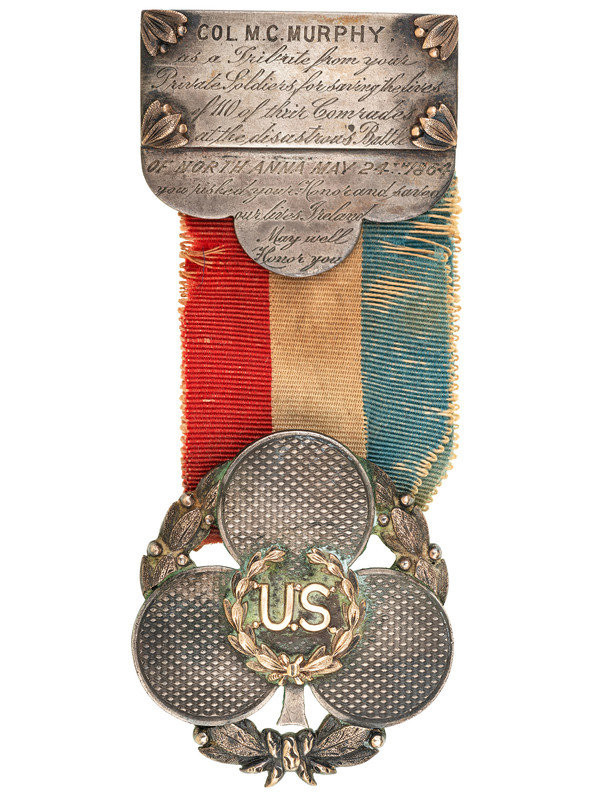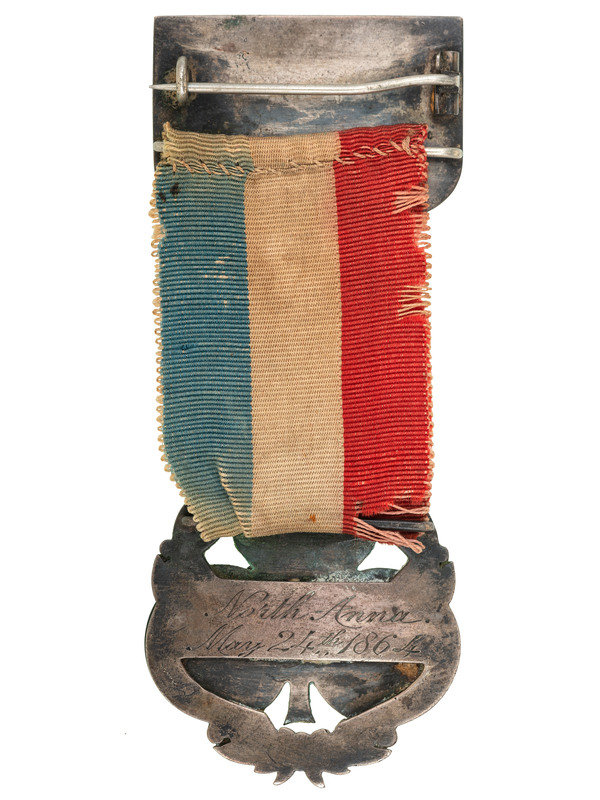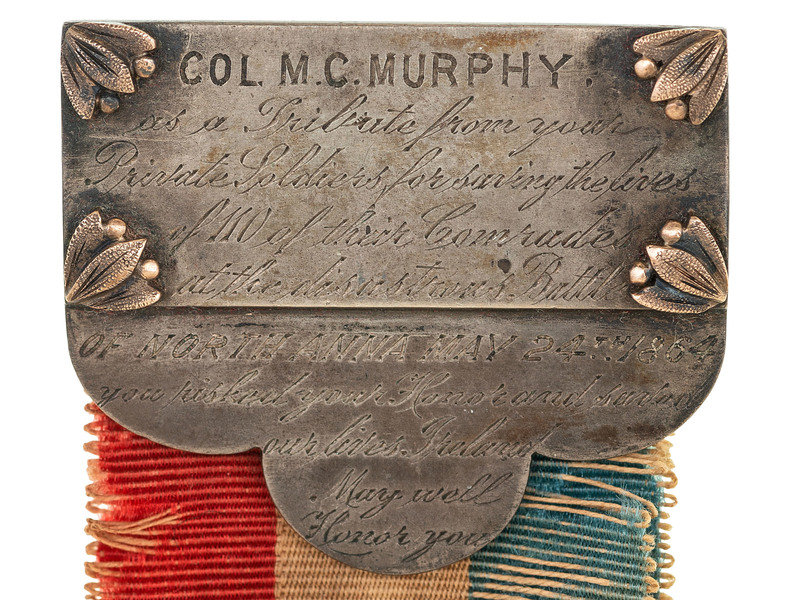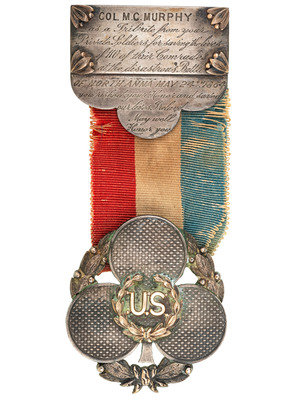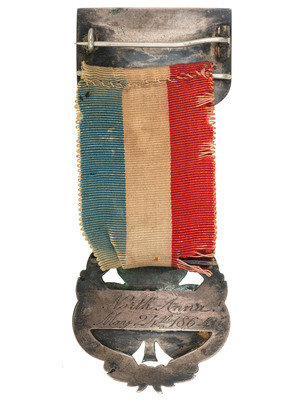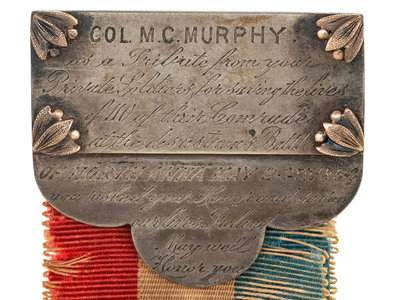Lot 404
[CIVIL WAR]. II Army Corps badge presented to Colonel Michael Cotter Murphy, 170th New York Infantry, Medal of Honor recipient for action at the Battle of North Anna River on 24 May 1864, and first New York City Police Commissioner.
Sale 1046 - American Historical Ephemera and Photography Featuring the Civil War and American Militaria Collection of Bruce B. Hermann
Lots 1-296
Jun 21, 2022
10:00AM ET
Lots 297-560
Jun 22, 2022
10:00AM ET
Live / Cincinnati
Own a similar item?
Estimate
$7,000 -
10,000
Price Realized
$7,500
Sold prices are inclusive of Buyer’s Premium
Lot Description
[CIVIL WAR]. II Army Corps badge presented to Colonel Michael Cotter Murphy, 170th New York Infantry, Medal of Honor recipient for action at the Battle of North Anna River on 24 May 1864, and first New York City Police Commissioner.
Overall approx. 1 5/16 x 3 1/8 in. silver and gilt two-part badge with tricolor silk ribbon; T-bar to reverse (minor tarnishing, small separations to ribbon). Pin bar engraved: "Col. M.C. Murphy. / as a Tribute from your / Private Soldiers, for saving the lives / of 110 of their Comrades / at the disastrous Battle / of North Anna May 24th. 1864 / you risked your Honor and saved / our lives Ireland / May well / Honor you." Reverse of Corps badge engraved: "North Anna. / May 24th 1864"
Michael Cotter Murphy (1839-1903), originally from Ireland, was an early volunteer, enlisting on 20 April 1861 as a captain, mustering into Co. C of Elmer Ellsworth's 11th New York Infantry, the Fire Zouaves, on 7 May 1861. He transferred into Co. C of the 170th New York Infantry on 7 October 1862, achieving promotion to lieutenant colonel on 4 January 1863. On 24 May 1864, while in command of the regiment at the Battle of North Anna, part of Grant's Overland Campaign against Lee's Army of Northern Virginia, Murphy "kept [the regiment] on the field exposed to the fire of the enemy for three hours without being able to fire one shot in return because of the ammunition being exhausted." (Congressional Medal of Honor citation). For this, he received the Medal of Honor and was also gifted the medal offered here, commissioned by his grateful soldiers.
Shortly thereafter, he was dismissed due to disability. In 1866, he joined the cause of Irish Republicans, becoming a general in the Fenian Brotherhood. This service, however, was short-lived as he returned to New York and became involved in politics, serving in the New York State Assembly. He was appointed by Mayor Robert A. van Wyck on 3 March 1898 as the Commissioner of Health of the City of New York and on 22 February 1901 as New York City's first Police Commissioner.
The Civil War and American Militaria Collection of Bruce B. Hermann
Condition Report
Contact Information
Auction Specialist
